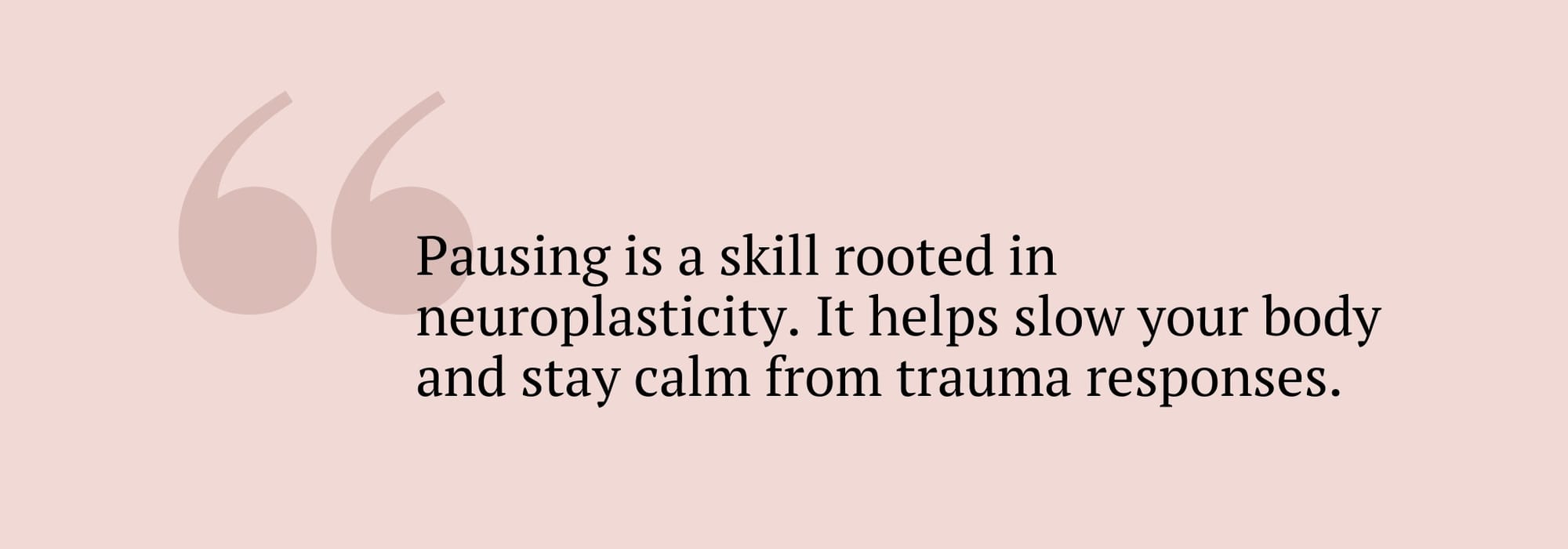Explore the connection between impulsive behaviour and certain mental health conditions, along with its impact, and when you should seek help
A little spontaneity can be a good thing, can’t it? We all act on impulse from time to time, but did you know that impulsivity can be a common symptom of many different mental health conditions? Acting without thinking – for example, buying things on a whim, or blurting something out before you think it through – doesn’t just happen in a moment of ‘weakness’ or carelessness; it can be a symptom all on its own.
“Impulsivity is a surprisingly common symptom. It can often show up as a symptom within broader mental health conditions, such as bipolar disorder and borderline personality disorder, or even during intense anxiety or trauma responses,” explains UK Council for Psychotherapy accredited therapist Tina Chummun. “It’s not just about making rash decisions; it can be your nervous system responding rapidly without your brain’s slower, logical processing getting a look-in.”
Other conditions that can be linked with more impulsive behaviours include those with substance use disorders, people who have experienced a brain injury, or neurodegenerative diseases like Alzheimer’s disease, people with antisocial personality disorder (ASPD), or impulse control disorders like trichotillomania or kleptomania.
Impulsivity can also be a characteristic of those who are neurodivergent. Those with attention deficit hyperactivity disorder (ADHD) may act more impulsively, make hasty decisions, or engage in what can be seen as risky behaviour.
What are the characteristics of impulsivity?
Those who are impulsive might face judgement from others, sometimes being described as ‘unstable’, ‘unpredictable’, ‘rash’, or ‘hot-headed’. This impulsivity can lead to a sense of instability, which can cause people to feel like they aren’t good enough. In turn, this can result in struggling with unstable emotions, behaviours, or relationships. You might be less likely to consider the consequences of your behaviours, meaning you may develop unhealthy ways of coping with how you’re feeling.
It’s important to remember that impulsive behaviour alone isn’t a diagnosis, and doesn’t mean that you might be experiencing a mental health condition. But it’s worth keeping in mind that if repeated impulsive behaviour starts to interfere and have a negative impact on your life for an extended period of time, it could be a sign to seek help.
When you act on impulse, you do so without thinking or recognising that your behaviour may be out of the ordinary, or may have negative consequences. A compulsion, on the other hand, is when you realise a behaviour is abnormal, but cannot stop.
Why do some people act more impulsively?
While the exact causes aren’t fully understood, it’s believed that a number of different factors can contribute to impulsivity, including those that are environmental, genetic, and psychological. As well as being a symptom of some mental illnesses, impulsivity can stem from traumatic experiences, particularly during childhood when we develop our self-regulation skills.
“When someone’s in survival mode, their prefrontal cortex (the reasoning and planning part of your brain) takes a backseat, and the amygdala or limbic system takes over. That’s your neurobiology, not bad behaviour. Your brain-body’s intelligent self-defence mechanism means you act fast, and henceforth impulsively,” Tina explains.
“I often see impulsivity as a nervous system that’s been hijacked, usually due to unprocessed stress, trauma, or unmet emotional needs. It’s your body’s way of trying to feel something quickly, escape discomfort, or regain a sense of control and safety in a perceived threatened time, even if it’s only momentarily.”
Recognising the signs
The way impulsivity presents can really vary. You might find yourself constantly starting over, turning over a new leaf, or starting (and quitting) new hobbies, groups, or activities. Maybe you have trouble staying still, sticking to plans, or find yourself cancelling things last minute. You could find yourself having frequent emotional outbursts, escalating confrontations, or jumping to conclusions. You might have a problem with overspending, oversharing, overindulging, or even overapologising.
What’s the impact?
Being impulsive can significantly impact you, and those around you. “For the individual, there’s often a cycle of relief followed by regret. What felt like a quick fix can now leave you feeling like an emotional mess,” explains Tina. “Relationships suffer when impulsive behaviour starts to look like unreliability, recklessness, or even selfishness, when in truth, the person is often wrestling with a dysregulated, chaotic, and overwhelming brain.
“From a neurobiological point of view, it’s exhausting. Your brain’s dopamine reward system gets overstimulated, creating a cycle of seeking quick hits of validation, excitement, and relief without long-term satisfaction. Over time, this can lead to burnout, chronic stress, and damaged relationships. It can also compound mental health conditions like anxiety or depression when people start to internalise their impulsivity as failure or shame.”

Addressing your impulsive behaviours
Once you’ve learned to start spotting the signs of impulsivity, how can you start to challenge and change these behaviours?
“One of the simplest and most powerful things is to try to journal when your impulsivity happens. Reflect on those moments so you can work on your awareness of it,” Tina suggests. “Then, practise pausing when you catch yourself being impulsive. It sounds basic, but pausing is a skill rooted in neuroplasticity. It helps slow your body, and stay calm from trauma responses.”
Therapy can be another option. Working with a therapist can help you figure out the underlying cause of impulsive behaviour, spot the warning signs, and know how to help change it.
“It’s rarely just ‘poor self-control’,” Tina says. “More often than not, it’s a result of past trauma, chronic stress, emotional suppression, or unmet neurodiverse needs. If impulsivity is interfering with your relationships, self-esteem, finances, or your day-to-day wellbeing, it’s a clear sign it’s time to seek help. There’s no shame in seeking professional support. It’s about building awareness, and working with your brain.”
Impulsivity may feel overwhelming, but it’s also something you can learn to manage. With small, consistent steps and the right support, you can create space between reaction and response. Whether through journaling, therapy, or simply learning to pause, change is possible.


Comments